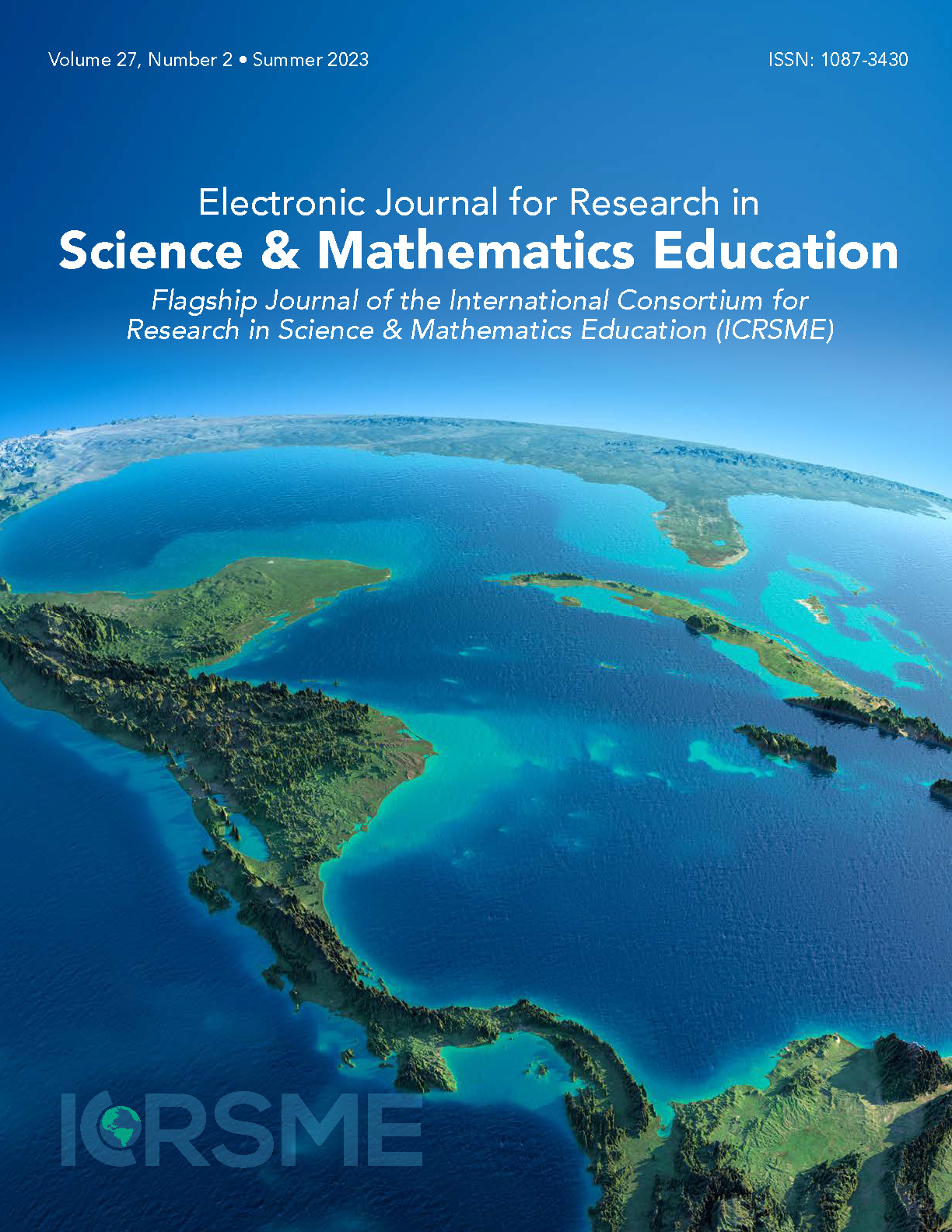The Examination of the Relationship Between Scientific Literacy and Some Cognitively Based Individual Differences in Terms of Gender
Main Article Content
Abstract
The aim of this study is to examine whether the structural model that Authors (2020) put forward about the relationship among students’ scientific literacy levels, logical thinking ability, cognitive styles, mental capacity and mental rotation ability differ in terms of gender. The causal-comparative model approach was used in this study. The sample of the research is 823 seventh grade students in the central districts of Ankara. This sample was created using the random stratified sampling method. In the study, it is seen that 64% of the variance in the scientific literacy scores of the female and 48% of the variance in the scientific literacy scores of the male are explained by the cognitively based variables. Comparing male and female student in the data analyses, the predictive effect of the mental rotation ability of female students on the logical thinking ability was not found significant. In male students, when only the direct effects were examined, the effect of cognitive styles on scientific literacy was not significant. Based on the results of the study, it is thought that examining the interactions among the cognitive styles and activities related to learning, teaching, and assessment process used in science classes will play an important role in the process of removing inequalities of opportunity arising from possible gender-cognitive style interaction in the process of raising scientifically literate individuals.
Keywords: Cognitive Styles • Gender • Logical Thinking Ability • Mental Capacity • Mental Rotation Ability • Scientific literacy
Article Details
© 2025 Electronic Journal for Research in Science & Mathematics Education (EJRSME)
